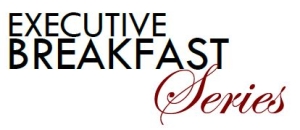By Patrick McCormick
Two recent cases serve to remind us of the importance of carefully drafting default notices and strictly complying with the terms of a lease. In the first case, deficiencies in a default notice resulted in the dismissal of a commercial holdover proceeding. In the second, the failure to strictly comply with the surrender clause of a sublease resulted in a judgment against the subtenant in excess of $1.0 million.
The Supreme Court, Appellate Term, in 240 West 37th LLC v. BOA Fashion, Inc., 2009 NY Slip Op 51823U; 24 Misc. 3d 145A; 899 NYS2d 63 (App. Term, 1st Dep’t) reversed the lower court and granted a tenant’s cross-motion to dismiss the proceeding. While the landlord’s predicate default/cure notice specifically identified the lease provisions allegedly violated, “it conspicuously failed to inform the tenant of the precise defaults alleged.” The Court held that “it is imperative that the cure notice particularize the nature of the default(s) with clarity and factual basis. A mere reference to or recitation of a numbered lease provision, without specifying the nature of the violation(s), is insufficient.”
Here, the lesson to be learned, at least where default/cure notices are concerned, is that more is better. In addition to lease references, specific details about the conduct/circumstances constituting the default should be set forth in the default/cure notice. If specific factual details are not known, caution should be exercised before serving the default/cure notice — under penalty of dismissal.
In the second case, American Express Travel Related Services Company, Inc. v. Stamack Constructions LLC, 2010 NY Slip Op 30407U; 2010 N.Y. Misc. LEXIS 2456, plaintiff/sublandlord commenced an action against the defendant/subtenant for unpaid rent. Subtenant alleged it was not liable for the rent because it surrendered the premises to the managing agent who induced it to surrender the premises. The sublease contained a typical clause incorporating the terms of the overlease within the sublease. The surrender clause in the overlease required any surrender of the premises to be in a writing and signed by the owner. The overlease used the terms “landlord” and “owner” interchangeably and the sublease provided that the term “landlord” in the overlease shall mean “sublandlord.” Subtenant claimed it was induced to break the lease and vacate the premises by the owner’s managing agent. The subtenant did not prepare a writing surrendering the sublease and the sublandlord did not sign such a written surrender. The subtenant’s failure to comply with the lease (and thus sublease) surrender clause requirement of a written surrender notice which is accepted in writing by the sublandlord was fatal to the subtenant’s claim. In fact, the Supreme Court held that even if subtenant could prove it was induced by the managing agent to surrender the premises, such would not provide a vialble defense to the sublandlord’s rent claim — at most there might be a claim against the managing agent or owner, neither of which was a party to the sublandlord’s action. Subtenant’s failure to strictly comply with the applicable surrender clause resulted in a judgment against it in excess of $1.0 million plus legal fees incurred by sublandlord.
A primary reason for entering into written lease agreements is to memorialize the landlord and tenant’s rights, duties and obligations. The lesson here is that ignoring the terms and requirements of a written lease can have severe consequences which can easily be avoided by knowing and complying with the requirements of your lease.


 Please join us on us on Thursday, November 3 for a complimentary Small Business Town Hall meeting of
Please join us on us on Thursday, November 3 for a complimentary Small Business Town Hall meeting of 



